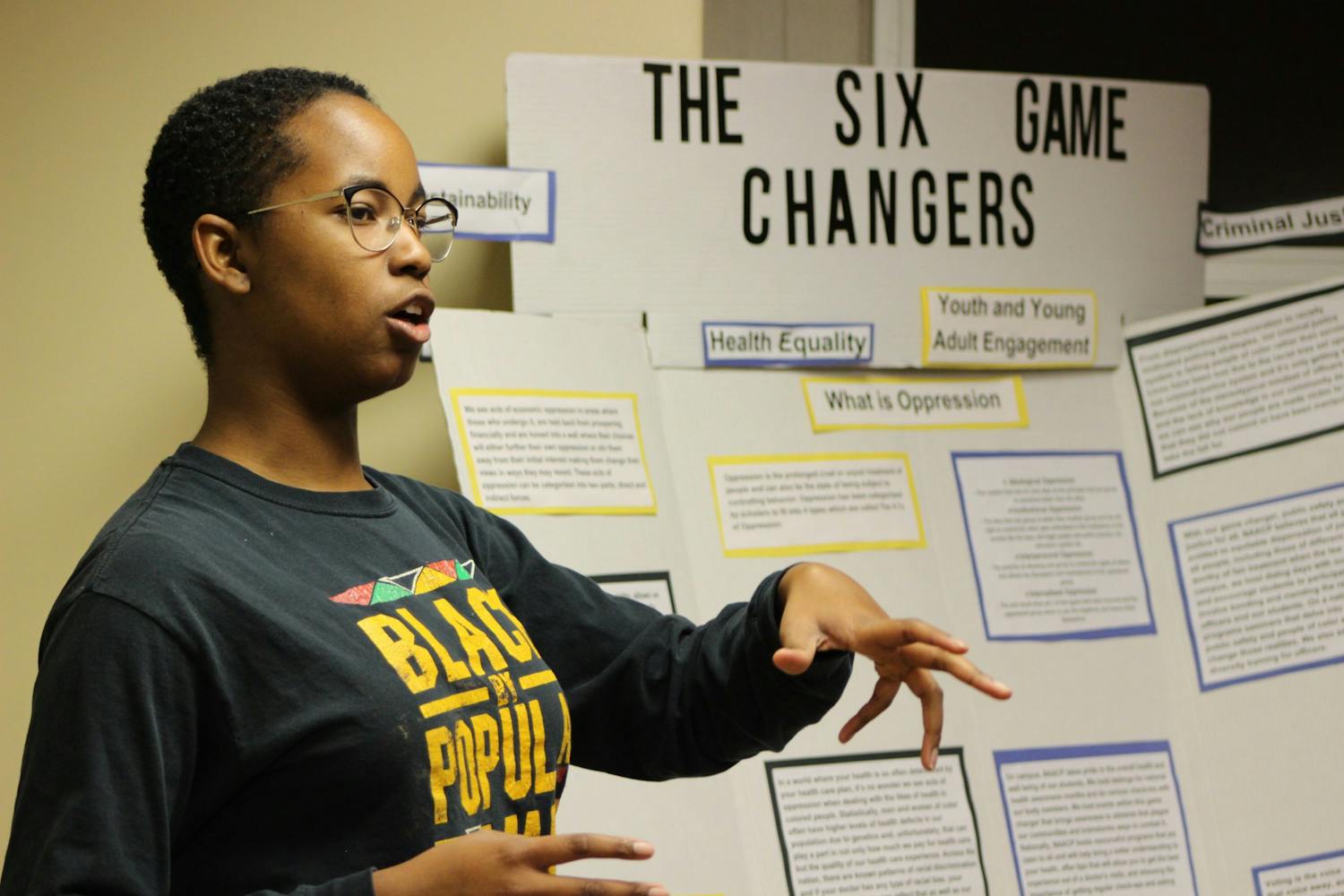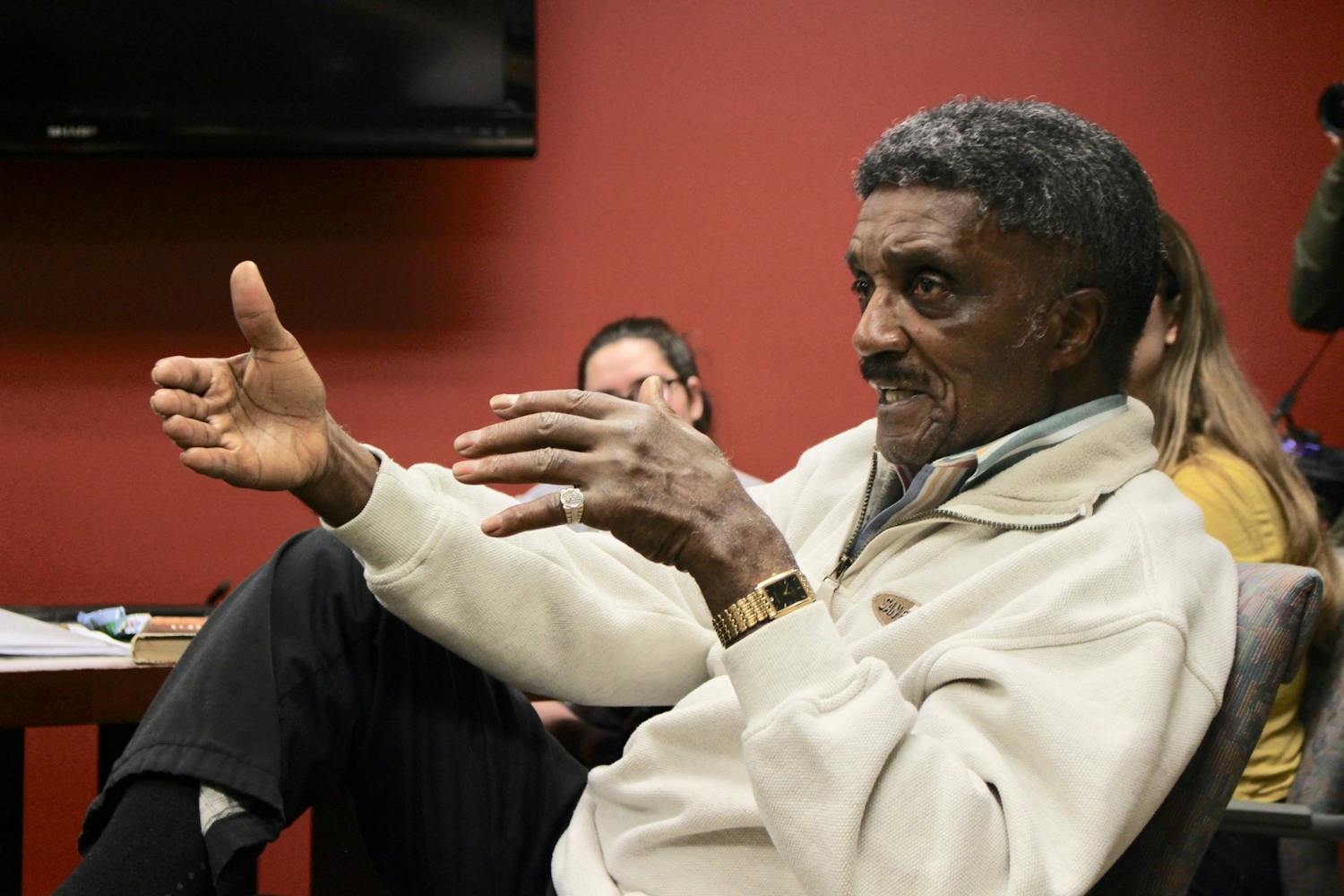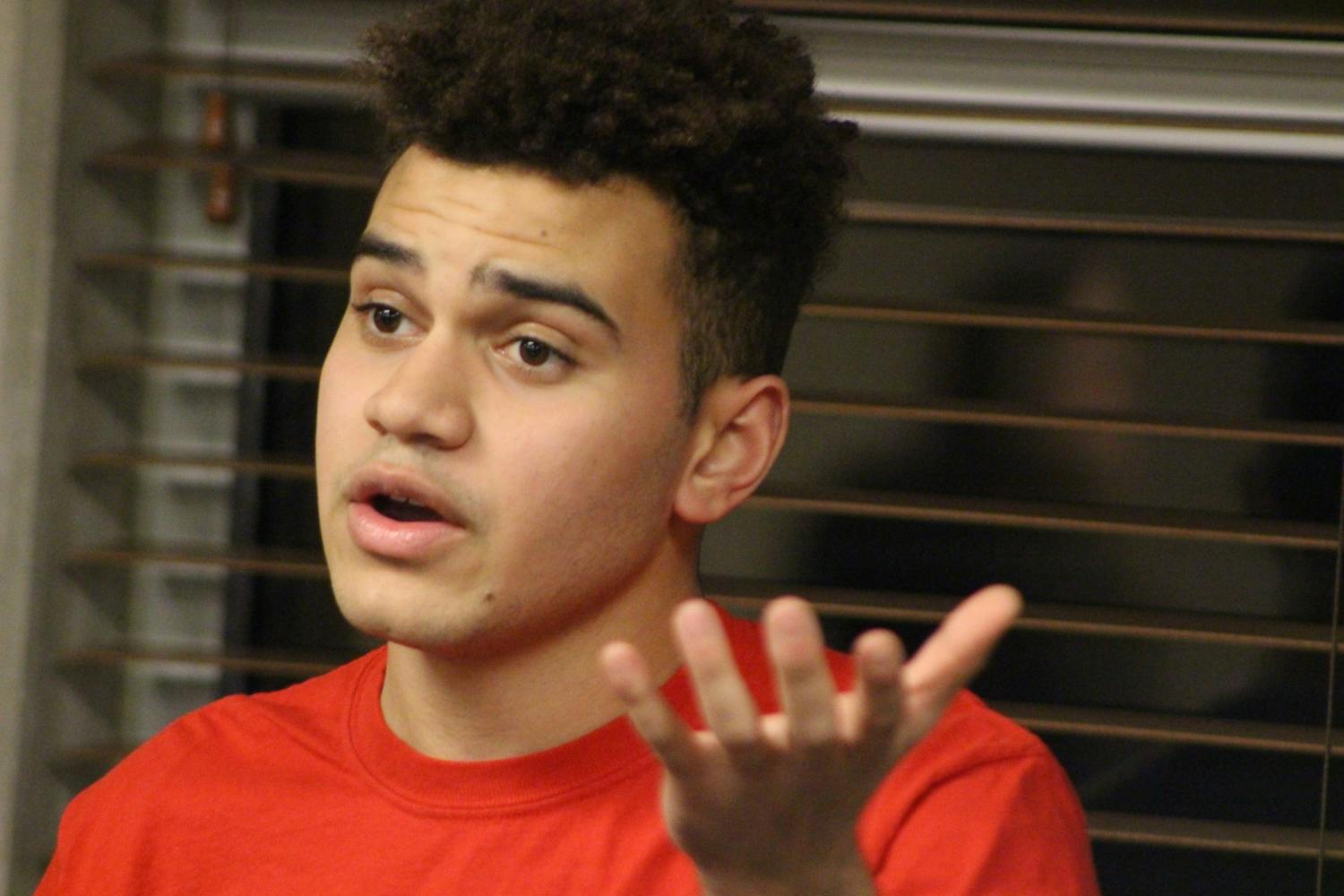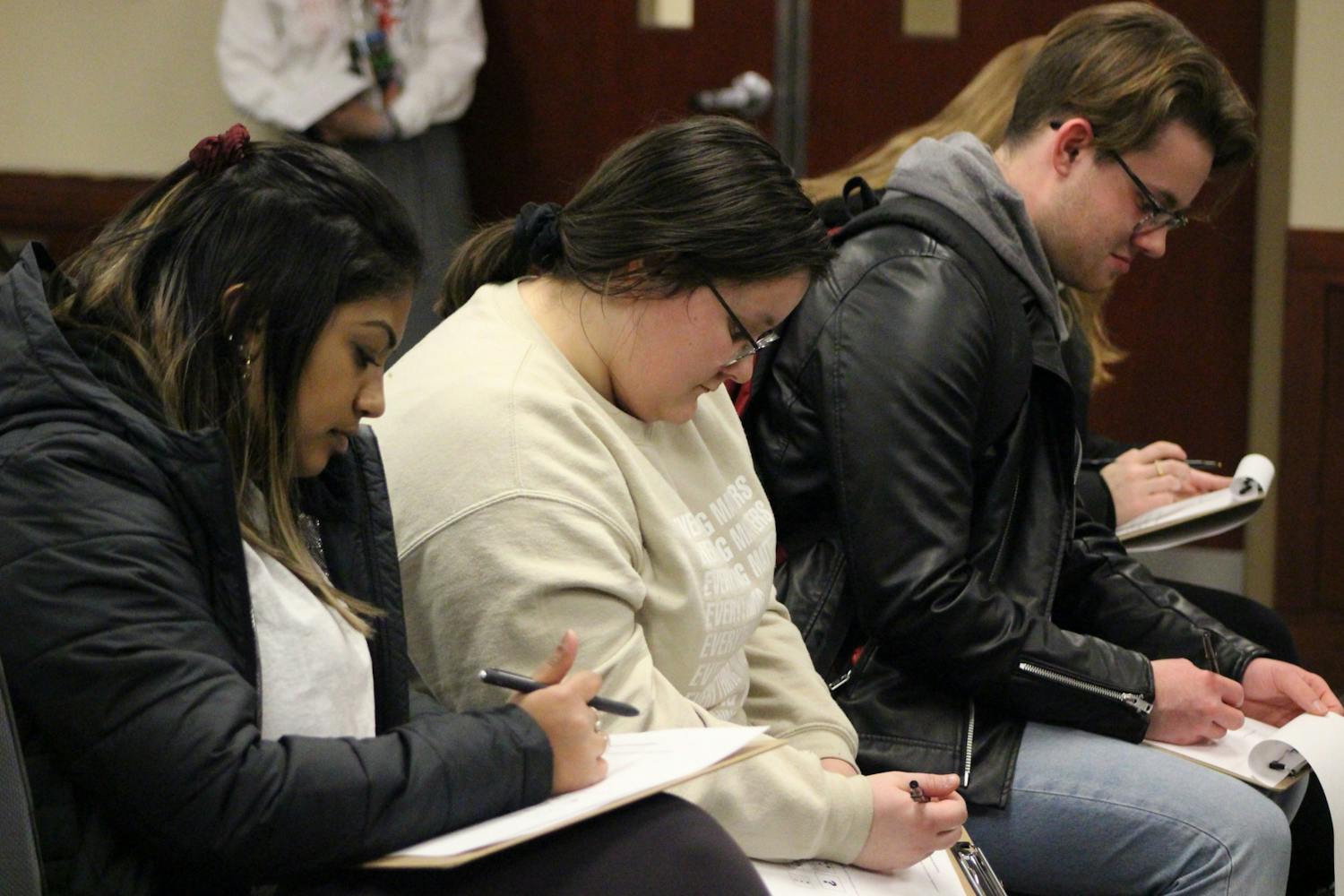Seven organizations presented on different subjects during the Tunnel of Oppression event:
- National Residence Hall Honorary (NRHH) – gender and race stereotyping during tests
- National Association for the Advancement of Colored People (NAACP) – oppression
- Latinx Student Union (LSU) – Latin-American crises
- Asian American Student Association (AASA) – Japanese-American internment camps
- Center for Peace and Conflict Studies – Victoria Woodhull
- Residence Hall Association – low socioeconomic status
- Spectrum – LGBTQIA+ awareness
Exploring the life and times of Victoria Woodhull — the first woman to become a Wall Street stockbroker, a newspaper editor in New York City and run for the U.S. presidency in 1872 — was just one of many exhibits at Thursday’s Tunnel of Oppression event.
Students like Adrian Scott, junior public communication major, said many people do not know women before Hillary Clinton who ran for the presidency.
Even more surprising, Scott said, was how Woodhull ran nearly 50 years before women in America had the right to vote.
The event, held Thursday as part of the university’s annual Unity Week, had participants shuffled into rooms on the third floor of the Student Center to give them the opportunity to explore a booths designed to help people observe a simulation of oppression.
Hayley Griffith, graduate assistant for the multicultural center, helped organize the event. She said the Tunnel of Oppression allows for organizations across the university to share their viewpoints and identities.
“It's just an opportunity … to understand your peers, and just really understand what oppression is and how we can continue to build our society in order to include everyone,” Griffith said.
In total, seven organizations hosted rooms concerning different subjects and presented their information through different means. Some had posters, text or photos placed around the room. Others performed skits or played videos.
National Residence Hall Honorary, for example, asked participants to fill out a quiz, which began with two survey questions regarding race and gender. Joseph Johnson, NRHH president, said questions like this can often be a deterrent to people taking the test because of intellectual stereotypes.
“Personally, in high school, when taking a test — it made me nervous,” Johnson said. “I went to a predominantly white high school … I felt like I had to perform better on those tests.”
Tyra Holland, treasurer of Ball State’s chapter of the National Association for the Advancement of Colored People, defined oppression as “the prolonged cruel or unjust treatment of people” and “the state of being subject to controlling behavior.”
Holland said she would not let oppression get to her.
“Being not only black but being a black woman — I don't see that being a disadvantage for me at all,” she said.
She said she was thankful for the event allowing students to give their perspective.
“I spoke to so many people today, and so many people heard me … so much more than I could have ever done on a smaller scale,” Holland said.
Contact Bailey Cline with comments at bacline@bsu.edu or on Twitter @BaileyCline.








